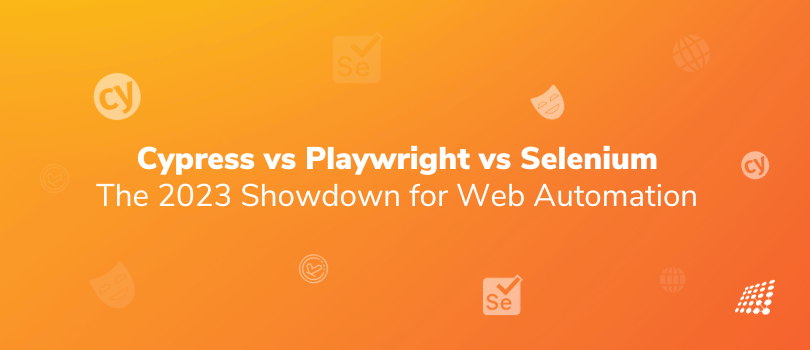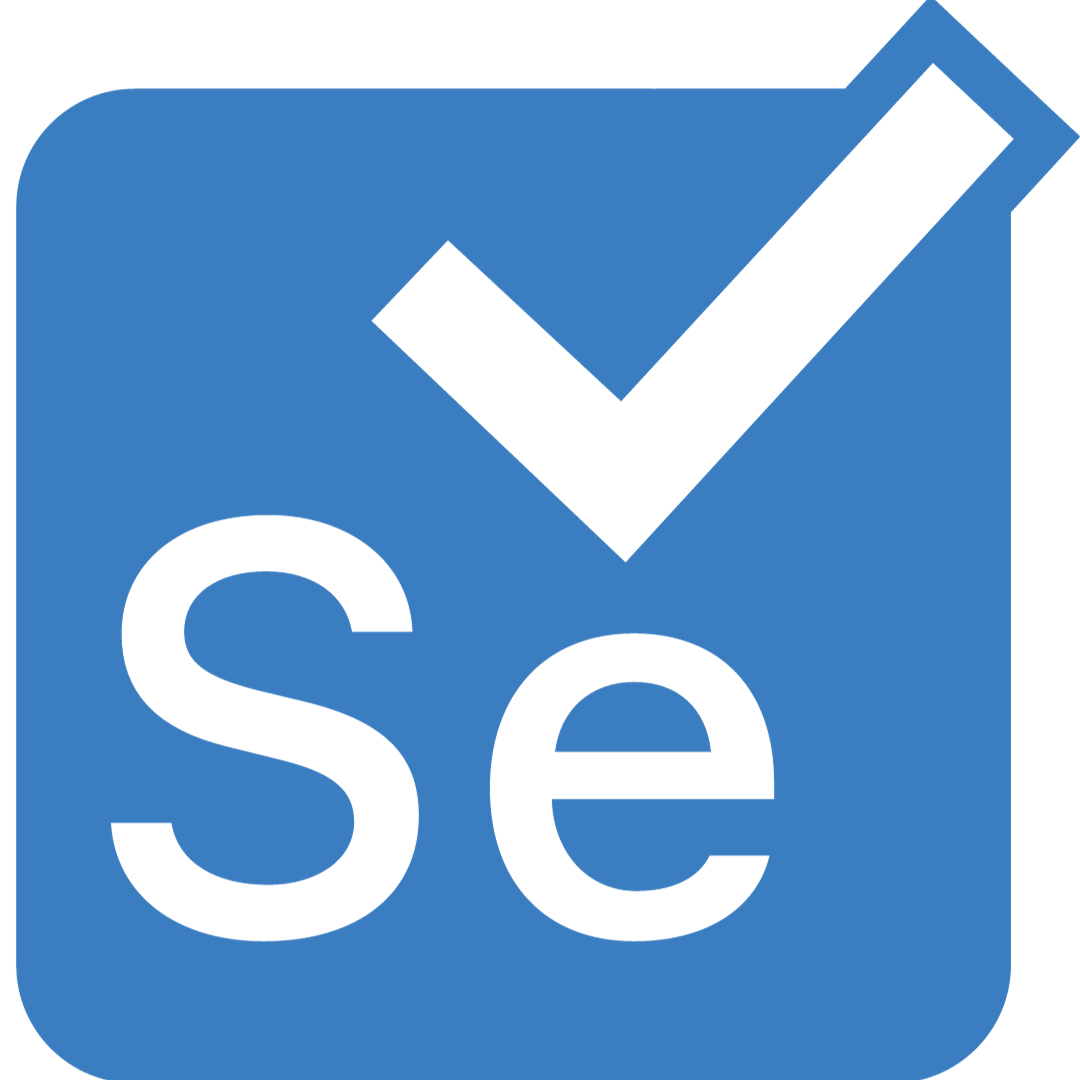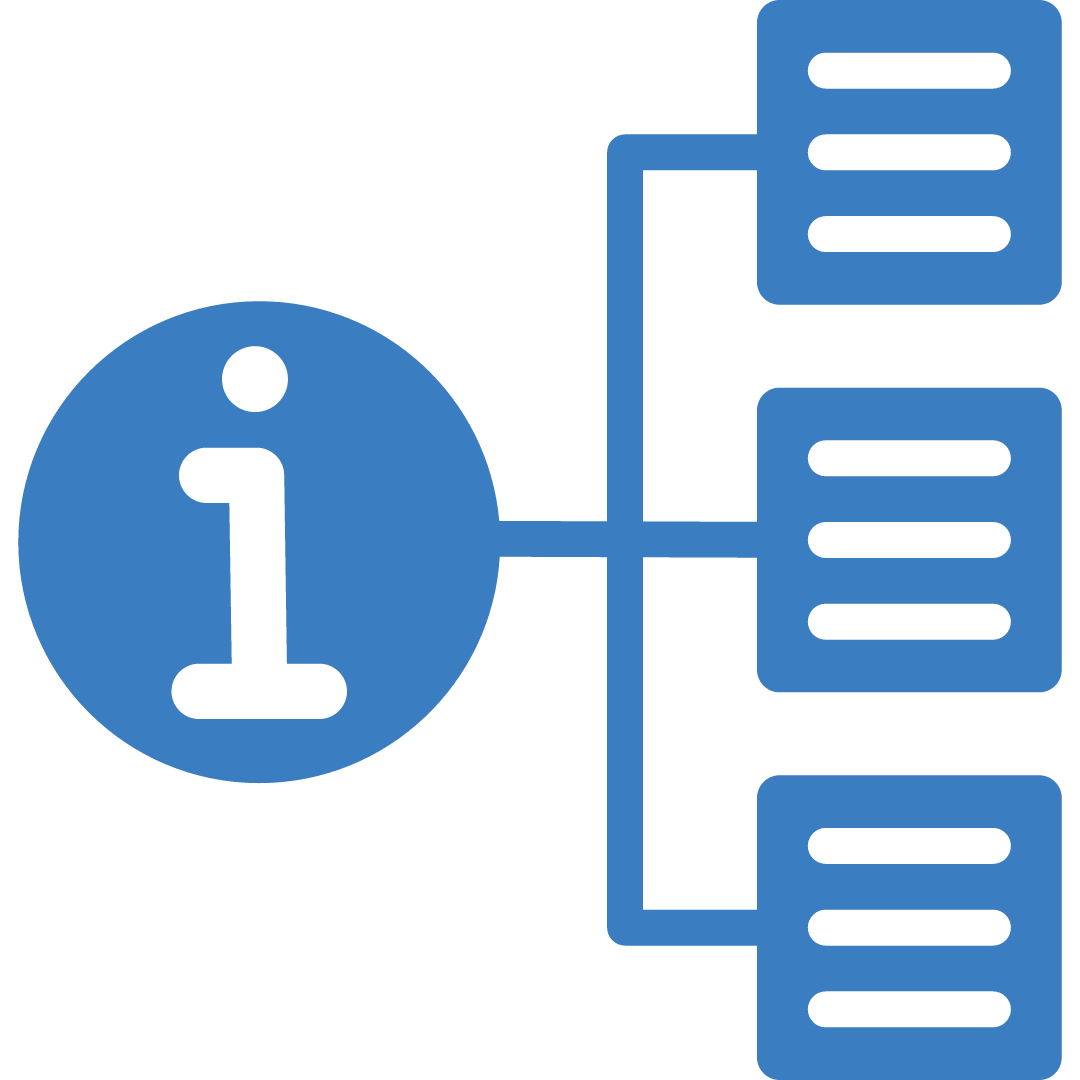Cypress vs Playwright vs Selenium: The 2024 Showdown for Web Automation

If you rewind web automation in 2023, three tools emerge as key players: Cypress, Playwright, and the veteran, Selenium. Each has its unique strengths and challenges, so choosing the right one can significantly impact the efficiency and effectiveness of your testing process.
In this blog, we delve into each tool's pros, cons, and unique features, helping you make an informed decision.
Selenium!

We are going to start with the oldest one, Selenium. A prerequisite in the world of test automation, Selenium has been a go-to choice for web testing for quite some time. It’s well known for its robust capabilities, versatility, and large community of users and contributors.
Pros of Selenium:
- Wide Browser Support: Including Chrome, Firefox, Safari, Edge, and more.
- Language Support: Provides bindings for various programming languages such as Java, Python, C#, and JavaScript, making it accessible to a broad spectrum of developers.
- Large Community: With a large and active community, there is abundant documentation, resources, and a wealth of user-generated content to aid troubleshooting and learning.
- Cross-Platform Compatibility: Compatible with multiple operating systems, including Windows, macOS, and Linux.
- Robust Ecosystem: Offers tools and frameworks like Selenium Grid for parallel testing, Selenium WebDriver for automation, and Selenium IDE for record-and-playback capabilities.
- Mature and Stable: Being one of the oldest automation tools, Selenium has proven its stability and reliability over time, earning the trust of many enterprises.
Cons of Selenium:
- Complex Setup: Setting up Selenium for the first time can be challenging for beginners, especially in configuring drivers for different browsers.
- Flakiness: Selenium tests can be prone to flakiness, where tests fail intermittently due to factors like page loading times or dynamic elements.
- Slow Execution: Selenium tests can sometimes run slower compared to other modern tools, which may affect the efficiency of your test suite.
- No Built-In Test Runner: Selenium doesn’t include a built-in test runner or assertion library, which means you need to rely on additional frameworks or tools to handle these aspects.
- Limited Mobile Support: While Selenium can automate mobile web browsers, its mobile app testing capabilities are less robust compared to specialized mobile testing tools.
- Steep Learning Curve: Selenium’s flexibility comes at the cost of a steeper learning curve, especially for those new to test automation.
Playwright!

Next up is Playwright, the youngest contender but creating quite a buzz in the testing community for its unique capabilities and approach to test automation. It promises to simplify web testing and enhance automation capabilities.
Pros of Playwright:
- Cross-Browser Support: Supports multiple web browsers, including Chromium, Firefox, and WebKit, enabling comprehensive cross-browser testing.
- Unified API: Provides a unified API for automating web, mobile, and desktop applications, so it’s a versatile choice for various testing scenarios.
- Automating Complex Scenarios: Excels at automating complex scenarios, such as handling iframes, shadow DOM, and difficult-to-identify elements.
- Parallel test execution – Supported natively by Playwright.
- Language Support: Provides support for various programming languages such as Java, Python, C#, and JavaScript.
Cons of Playwright:
- Learning Curve: The modern approach of Playwright may present a learning curve, especially for those accustomed to traditional automation tools.
- Smaller Community: Compared to Selenium, Playwright’s community is smaller, which can mean fewer readily available resources and community-generated content.
- Newer Tool: Being a newer tool, some enterprises may be more hesitant to adopt Playwright for mission-critical projects.
- Compatibility Challenges: Some users have reported compatibility issues with specific websites and applications. Due to the rapid development of Playwright, updates are frequent, which can occasionally lead to compatibility challenges with existing codebases.
- Transition Period: If your team is accustomed to Selenium or another traditional automation tool, the transition to Playwright may require retraining and a period of adaptation, which could be seen as a hurdle for some organizations.
Cypress!

Our final contender in the battle of the test automation titans is Cypress, a tool known for its simplicity, speed, and developer-friendly approach to testing.
Pros of Cypress:
- User-Friendly: Known for its developer-friendly interface, it allows testers and developers to write and run tests easily.
- Real-Time Reloading: Provides real-time reloading, making test development and debugging more efficient.
- Automatic Waiting: Automatically waits for elements to become available, reducing the need for explicit waits in your test scripts.
- Time-Travel Debugging: Offers a unique time-travel debugging feature that allows you to inspect and debug test execution step by step.
- Fast Execution: Designed for speed, with faster test execution times compared to some other automation tools.
- Built-In Test Runner: Includes a built-in test runner and assertion library, simplifying test creation and management.
- Good Documentation: Has well-structured documentation and a helpful community to support users.
Cons of Cypress:
- Limited Cross-Browser Support: Cypress primarily supports Chrome, with limited support for other browsers. This can be a drawback if cross-browser testing is a critical requirement.
- No Mobile App Testing: Cypress focuses on web application testing and lacks robust capabilities for testing mobile apps.
- Learning Curve for Advanced Scenarios: While Cypress is user-friendly for basic use cases, more complex testing scenarios may require a deeper understanding of its architecture.
- JavaScript-Only: Cypress is primarily JavaScript-based, which may not be ideal for teams that prefer other programming languages.
- Limited Ecosystem: The Cypress ecosystem, while growing, may not offer the same range of plugins, extensions, and integrations as more mature tools like Selenium.
How to Select the Right Automated Testing Tool

The choice of the right tool hinges on several factors:
- Cross-Browser Support: Selenium excels in this aspect, whereas Playwright and Cypress have their strengths in modern browser testing.
- Language Support: Selenium offers the most extensive language support, while Playwright and Cypress primarily focus on JavaScript, with some additional language support.
- Ease of Use and Setup: Cypress and Playwright offer streamlined setups and modern APIs, while Selenium might require more configuration due to its robust features.
- Community Support and Resources: Selenium boasts a vast community, while Playwright and Cypress, being newer, might have smaller but growing communities.
Features
Playwright
- Language Support: JavaScript
- Browser Support: Chrome, Edge, Firefox, Safari
- Framework Support: Jest/Jasmine, AVA, Mocha, Vitest
- Continuous Integration: Can be easily integrated with CI tools like Jenkins
- Ease of Use: User-friendly interface, minimal setup
- Test Writing Experience: Intuitive
- DOM Manipulation: Easy
- Community Support: Growing community
- Support for Headless Mode: YES
- Parallel Execution: Supports parallel execution
- Built-in Network Traffic Control: YES
- Setup Complexity: Easy Setup
- Iframe Support: YES
- Driver: No driver required
- Multi Tab Support: YES
- Drag & Drop Support: YES
- Test Assertions Libraries: Mocha, Chai
- Inbuilt Reports: YES
- Cross-Domain Support: YES
- Debug Features: Built-in debugging tools and time-traveling feature
- Automatic Waiting: YES
- Dashboard: NO
- Community Support: Good
- Built-in Screenshot, Video Feature: YES
- Pricing: Free for open-source projects, paid for commercial use
Selenium
- Language Support: Java, C#, Python, Ruby
- Browser Support: Chrome, Edge, Firefox, Safari
- Framework Support: Mocha, Jest/Jasmine, TestNG, JUnit, Cucumber, NUnit
- Continuous Integration: Can be easily integrated with CI tools like Jenkins
- Ease of Use: Requires more setup, steeper learning curve
- Test Writing Experience: Moderate
- DOM Manipulation: Moderate
- Community Support: Large and active community with good documentation and support resources
- Support for Headless Mode: YES
- Parallel Execution: Supports parallel execution
- Built-in Network Traffic Control: NO
- Setup Complexity: Requires some effort to build the framework
- Iframe Support: YES
- Driver: Each browser requires its driver
- Multi Tab Support: NO
- Drag & Drop Support: YES
- Test Assertions Libraries: PyUnit, JUnit, TestNG, language-specific test frameworks
- Inbuilt Reports: NO
- Cross-Domain Support: YES
- Debug Features: No built-in debugging tools
- Automatic Waiting: NO
- Dashboard: NO
- Community Support: Very Good
- Built-in Screenshot, Video Feature: No built-in screenshot feature, Customization required
- Pricing: Free for all use cases
Cypress
- Language Support: JavaScript/TypeScript
- Browser Support: Chrome, Edge, Firefox, Safari
- Framework Support: Mocha, Jest/Jasmine, Cucumber
- Continuous Integration: Can be easily integrated with CI tools like Jenkins
- Ease of Use: User-friendly interface, minimal setup
- Test Writing Experience: Intuitive
- DOM Manipulation: Easy
- Community Support: Active community with good documentation and support resources
- Support for Headless Mode: YES
- Parallel Execution: Supports parallel execution using CI/CD tool
- Built-in Network Traffic Control: YES
- Setup Complexity: Easy Setup
- Iframe Support: Iframe support through plugins like cypress-iframe
- Driver: No need for driver bindings
- Multi Tab Support: YES
- Drag & Drop Support: YES
- Test Assertions Libraries: Mocha, Chai
- Inbuilt Reports: Default Reporter is Spec, Customizable for other supported reporters
- Cross-Domain Support: YES
- Debug Features: Built-in debugging tools and time-traveling feature
- Automatic Waiting: YES
- Dashboard: Provided as Premium/Paid Feature
- Community Support: Good
- Built-in Screenshot, Video Feature: YES
- Pricing: Free for open-source projects, paid for commercial use
The Significance of Selecting the Right Framework
The Significance of Selecting the Right Framework
Cypress
Assures seamless functioning and performance of web applications, impacting efficiency, accuracy, and adaptability of testing suite.
Playwright
Assures seamless functioning and performance of web applications, impacting efficiency, accuracy, and adaptability of testing suite.
Selenium
Assures seamless functioning and performance of web applications, impacting efficiency, accuracy, and adaptability of testing suite.
Understanding the Framework
Cypress
Lauded for simplicity, suitable for smaller teams.
Playwright
Known for cross-browser support, ideal for complex testing scenarios.
Selenium
Recognized for robustness and widespread adoption in various industries.
Ease of Use and Learning Curve
Cypress
Intuitive interface, simplified syntax, swift onboarding.
Playwright
Slightly more complex, comprehensive documentation.
Selenium
Extensive setup, challenging for novices.
Cross-Browser Compatibility
Cypress
Strong cross-browser compatibility, tests run uniformly across browsers.
Playwright
Strong cross-browser compatibility, tests run uniformly across browsers.
Selenium
Wide array of browser support but may need additional setup.
Mobile Testing Capabilities
Cypress
Efficient for web applications, limited mobile testing functionalities.
Playwright
Offers extensive support for emulators, simulators, and device testing.
Selenium
Offers extensive support for emulators, simulators, and device testing.
Speed and Performance
Cypress
Commendable execution speeds, parallel testing capabilities.
Playwright
Commendable execution speeds, parallel testing capabilities.
Selenium
Slightly slower due to architecture.
Programming Language Support
Cypress
Predominantly supports JavaScript.
Playwright
Supports JavaScript, Python, and other languages.
Selenium
Offers multi-language support.
Community and Support
Cypress
Burgeoning community, active forums.
Playwright
Burgeoning community, active forums.
Selenium
Vast community, extensive documentation.
Use Cases and Industry Relevance
Cypress
Favored for simplicity in smaller teams.
Playwright
Favored for robustness in complex testing scenarios.
Selenium
Extensive use in enterprise-level applications across various industries.
Integration and Tool Ecosystem
Cypress
Integrates well with numerous tools, ensuring seamless compatibility.
Playwright
Integrates well with numerous tools, ensuring seamless compatibility.
Selenium
Integrates well with numerous tools, ensuring seamless compatibility.
Choosing the Ideal Framework

In wrapping up, each framework possesses unique strengths. To select the best framework, consider your project's specific needs, team expertise, and scalability requirements.
By understanding the nuances of Cypress, Playwright, and Selenium, you’re equipped to make an informed decision that aligns with your project's objectives and industry demands.
Get in touch with our QA experts today to explore how our expertise can elevate your project's testing strategy, ensuring robust, user-friendly, and high-quality software. Let's collaborate to bring your software visions to life with the precision and care they deserve.

A Dive into Cybersecurity

Magento 2 Custom Module Development


